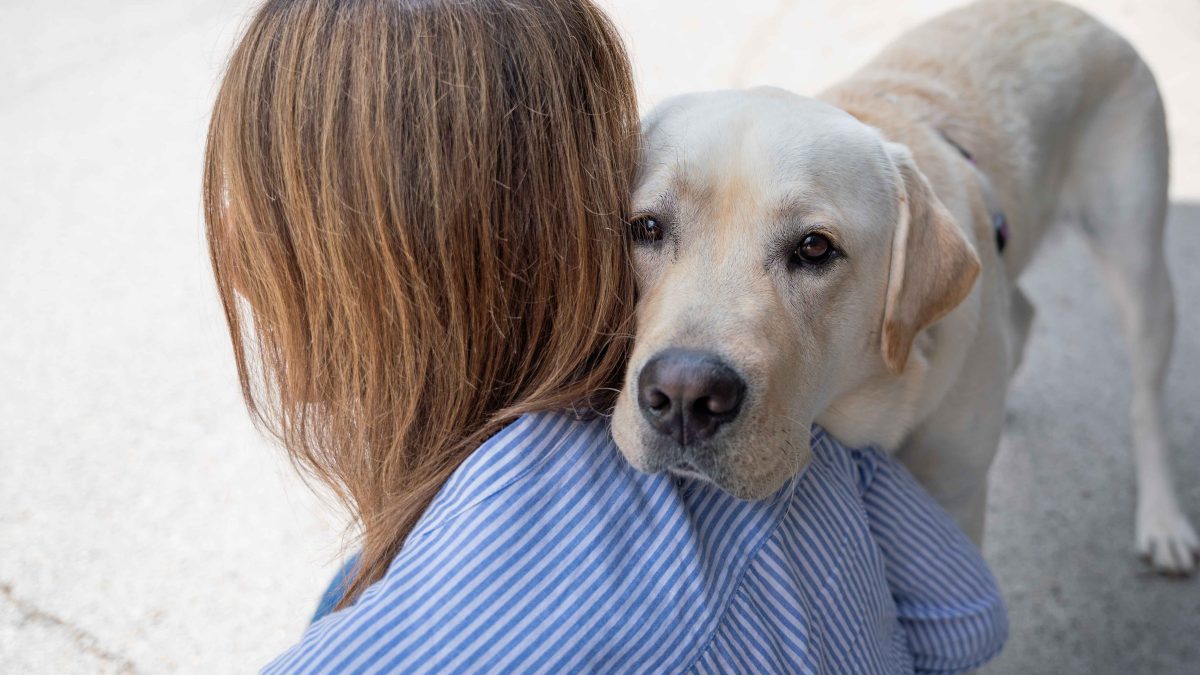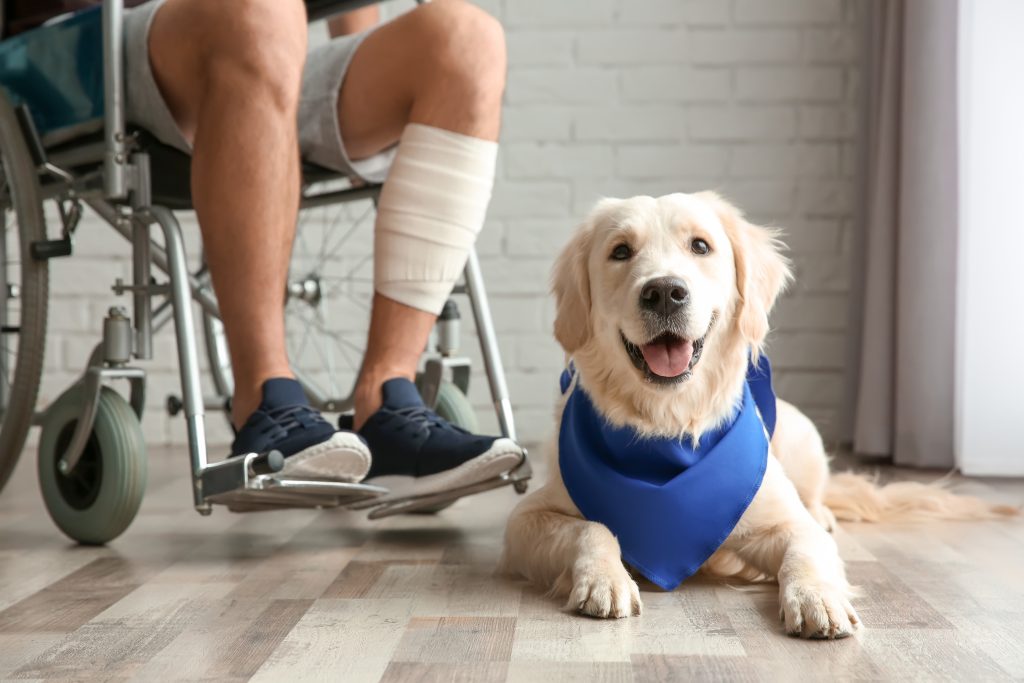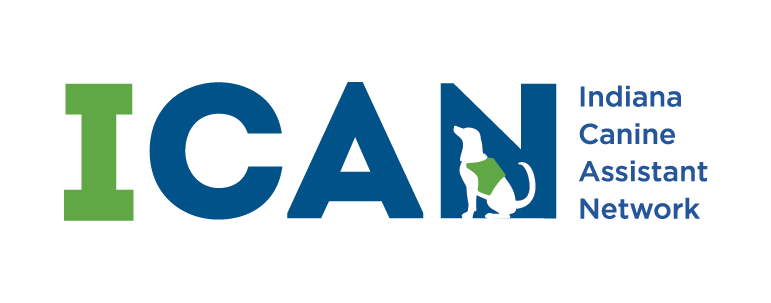Service Dogs: Do’s and Don’ts

Seeing a service dog in public is great! It means that the dog is able to provide their handler with a new level of independence and an ability to overcome challenges.
But what should you do when you see a working dog in public? Follow these service dog do’s and don’ts to ensure that you are respectful and considerate.
DO: Interact with the handler, not the dog.
If you need to interact with the service dog team in any way, be sure to speak directly to the handler. You should make eye contact with the handler and ignore the dog altogether. It may be tempting to want to pet or speak to the dog, but these things can be distracting for a working dog that has a job to do!
DO: Respect the handler’s privacy.
It is normal to have questions and be curious about why someone might need a service dog, but you shouldn’t intrude on the handler’s privacy.
Whether their disability is obvious or it’s an “invisible” disability (PTSD, diabetes, etc)—every person has the right to decide what they want to share about their disability and the role their service dog plays in their life.
If they choose not to talk about it, make sure you’re respectful of their boundaries.
DO: Remember the two questions you can legally ask a service dog team.
If you do need to inquire about a service team because you are unsure if the dog is a service dog—you may legally ask the handler two questions: “Is this a service dog?” and “What specific task is this dog trained to perform?”
It is never acceptable to ask a person to describe their disability, and these two questions ensure you don’t illegally intrude on a person’s privacy. Remember, service dogs are not the same as pet dogs and are allowed in places that pets are not allowed.
This tip is especially helpful for employees of businesses that do not allow pet dogs to enter the establishment and want to be able to quickly distinguish between service dogs and pets.

DON’T: Take pictures, make noises, or distract the dog in any way.
Most people know to never pet a working dog, but did you know that it is also disrespectful and distracting to take photos or shout out when you see a service dog?
Service dogs are considered a piece of medical equipment that must be focused on their handler at all times. Distracting a service dog in any way many cause the dog to miss important cues that could put the handler’s health and safety at risk.
Other distractions, such as petting or offering food or treats to a service dog without permission, should also be avoided. Remember to always ask permission before interacting with a service animal.
DON’T: Say that you wish you could take your dog in public too.
As previously mentioned, it is okay to have a conversation with a service dog team! However, when speaking to the handler, you should never say that you wish you could take your pet dog with you into public too.
It is important to recognize that the handler needs a service dog because they have a disability, not because they think having a dog in public is fun.
DON’T: Allow your pet dog to interact with a service dog.
You may spot service dog teams in areas where pet dogs are allowed, such as a hiking trail, an outdoor park, or a playground. It is important that you keep an appropriate distance from the team and never allow your pet to interact with the working dog, even if you know your pet is friendly.
Remember, service dogs have a job to do, and they are not pets. Allowing your dog to run up to another animal can be dangerous in many circumstances, but is it is especially distracting to a working dog that must stay focused on the handler.
Feeling excited or being surprised to see a service dog in public is normal, but it’s how you respond that really matters! By following the service dog do’s and don’ts and encouraging others to do the same, you can help ensure that service dog teams feel comfortable and confident in ALL public settings!
ICAN trains and places assistance dogs with individuals in Indiana who have disabilities and provides foundational life skills to inmates through their experience as trainers. To learn more, visit our website and follow us on Facebook, Instagram, Twitter, and YouTube.
